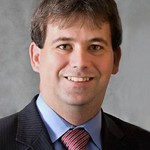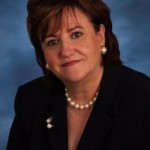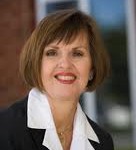In the wake of the school shooting tragedy in Newtown, Conn., traditional public schools aren’t the only ones having serious discussions about how to beef up safety. In Florida, charter schools and private schools are also making sure they’re maximizing protection for students, parents and staff.
But as district officials and state lawmakers debate next steps – and how to pay for them – there is the potential for tensions to surface between different education sectors.

In Broward County, for example, Sen. Eleanor Sobel, D-Hollywood, is proposing a new property tax that could raise $55 million to pay for police officers in every public school operated by the district. It wouldn’t apply to private schools, and Sobel, a former school board member, said she was uncertain if charters would be included, the South Florida Sun-Sentinel recently reported.
Some charter school supporters, meanwhile, are worried about the costs of new safety measures, especially if lawmakers mandate them. That could become a financial burden for charters, which already receive less in per-student funding than districts, and little in the way of capital outlay dollars, said Lynn Norman-Teck of the Florida Consortium of Public Charter Schools.
“It’s going to hurt,’’ Norman-Teck said, and it’s really not right. If lawmakers are going to look at ways to make schools safer, including allocating more dollars to public school districts, she said, they need to “bring charter schools to the table. They need to look at them [charters] as public schools because they are public schools.’’
Student safety has dominated discussions among parents, school leaders, politicians and safety experts across the nation following the fatal shootings last month at Sandy Hook Elementary School. Twenty students and six educators died after a gunman entered the school and fired a semi-automatic rifle into classrooms before killing himself.
In Florida, the conversation is expected to intensify this week as state lawmakers meet in Tallahassee to begin discussions about how to make schools safer.
The Florida Senate Education Committee addressed school safety Tuesday during its first meeting of the year. Charter schools weren’t mentioned, but committee Chairman John Legg, R-New Port Richey, said he believes charters are part of the discussion.

“Charter schools would be treated equally with public schools,’’ said Legg, who is a charter school administrator. “They are public schools.’’
If funding increased for safety measures, charters would benefit, too, Legg said. But not all schools are the same, he added. Some might want more funding to hire armed guards, while others only need fences or door locks. Those decisions are best left to local decision-makers, he said.
The Senate Appropriations Subcommittee on Education takes up the topic this morning.
The growing array of school choice options in Florida adds another layer of complexity to the issue.

In Hillsborough County, charter schools were part of a safety plan crafted by Superintendent MaryEllen Elia that put more security personnel at elementary campuses.
The Hillsborough school board gutted most of the plan Tuesday night, but agreed to hire a security consultant to further study the issue. Under Elia’s proposal, charter schools would have had to find a way to fund their share come August, when the district was on the hook for an estimated $4.1 million to pay for a 130 of its own security personnel.
The district would have helped charters with training, spokeswoman Linda Cobbe said. But salaries for the new personnel would have had to come from their budgets.
The move to include charters is “very nice’’ and somewhat unique, said Norman-Teck. Across the state, Lee and Okaloosa counties have followed suit, with city leaders and school board members approving plans to shoulder some costs with charters.
But in many instances, charter schools, like those in Palm Beach County, are creating their own plans and trying to figure out how to pay for them, Norman-Teck said.
Florida has a Safe Schools fund, with nearly $65 million earmarked for public schools in 2012-13. The majority goes toward school resource officers, but some of the money pays for afterschool programs, suicide prevention and anti-bullying education.
Wayne Blanton of the Florida School Boards Association recently told the News Service of Florida that the state would need $100 million to properly protect students. The extra dollars would help pay for more uniformed officers, better school construction and maybe even panic buttons in classrooms with doors that lock from the inside, Blanton said.
Neither Sobel nor Blanton returned calls for comment to redefinED.
Charter schools do receive a portion of Safe School dollars, said state Department of Education spokeswoman Cheryl Etters. But how that money is allocated varies by district.
Cametra Edwards, principal of Village of Excellence Academy, a charter elementary in north Tampa, said her school has received Safe Schools dollars for anti-bullying education and other mandated requirements. But it has not received funding for other safety measures, such as the plain-clothes officer who has been coming to the K-5 school during the morning and at dismissal.
Edwards said she appreciates the district’s gesture to include charters in a countywide safety plan, but the school already had significant safety measures in place. The longtime charter school operator isn’t sure having an armed guard is something her academy could afford, or would even want.
“I think, for the long run, it needs to be evaluated nationally,’’ said Edwards, whose school has been on a modified lockdown since the Sandy Hook incident. “How do you create a safe school?’’
Private schools also are evaluating crisis procedures and, in some cases, tightening security.
Florida Catholic schools are taking a survey of their best practices to share with other schools as they review annual safety plans, said James Herzog, associate director for education at the Florida Catholic Conference.
They’re also pushing for passage of a bill that would require private schools be included in the countywide safety alerts sent to public schools.
“School safety has been a concern of all secondary schools since Columbine,’’ said Thomas Reidy, principal of Tampa Catholic High School.
The school already has gates, visitor check-ins and security cameras, he said. Since the Newtown tragedy, “we have had some conversations with parents and teachers to work together …,’’ he said.
That has resulted in a review of emergency procedures, including mock lockdowns in recent days.
While some private schools might welcome sharing safety plans – and funding – with the state, many want to remain autonomous. Members of the Florida Council of Independent Schools are conducting their own trainings and looking instead, to their parents, fundraisers and others for guidance and support.

Barbara Hodges, executive director of the Tampa-based council, which represents 160 schools statewide, noted the armed guards at every public elementary school in Hillsborough. “All of our parents pay taxes as well,” she said.
But that doesn’t necessarily mean private schools want to take the same route, she said.
“We’ll see how the state responds to this,’’ Hodges said. “How we respond may be different.’’



[…] From Sherri Ackerman’s post in redefinED: […]